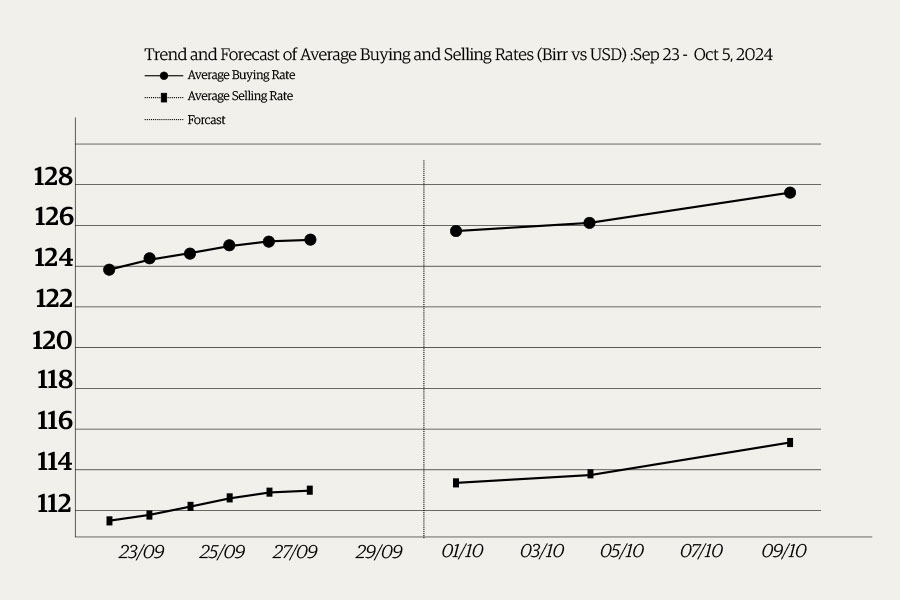
Films Review | Nov 09,2019
Oct 1 , 2022
By Christian Tesfaye
Fuel prices have escalated once again. A litre of diesel rose 22.2pc to almost 60 Br. Benzene went up by a fifth of its former price to 57 Br. The government is keeping its promise to phase out fuel subsidies to all but public transport providers. This round of price rises brings the country closer to the average pump prices of neighbours in the region such as Kenya.
The price increase explains why many blue taxi cab drivers, which offer alternative services during rush hour to commuters fed up with long lines, suddenly increased their prices. To my knowledge, in a route I used to take, they used to charge commuters, usually four in one trip, 50 Br each for a distance of around four kilometres. The price accelerated to 80 Br sometime ago. As of last week, it was 100 Br.
Some people claim that traders are the only people unaffected by price hikes because they will just pass it on to consumers. For price inelastic products, such as basic necessities like rent or food, this is true. Businesses selling price elastic goods and services are not so lucky. Every price rise for hotel rooms, restaurant meals and luxury goods inversely affects demand for them. The taxi cabs are a good example.
When they were charging 50 Br for a trip, there used to be queues by people too lazy to wake up in the morning and avoid even longer lines for mini-bus taxis and buses. Now, at 100 Br, there are no lines for them. Instead, it is the taxi cabs waiting for commuters that queue. All the people that used to line up suddenly found the incentive to wake up very early in the morning, before rush hour, or to tolerate the long lines they used to pay 40 Br more to avoid.
Lesson? Businesses cannot pass on their costs to consumers as much as they like to, especially on price elastic goods and services customers can go without. Inflation can sound the death knell for them, by chasing away customers on one hand, and increasing their costs of doing business on the other. When the margins get thin enough, they will have to close down.
We may be witnessing the last gasp for the blue taxi cabs, better known for their Russian brand name, Lada. They are notoriously fuel inefficient, so they are much more exposed to price rises at the pump. It also does not help that they are decades old, thus prone to breaking down and incurring spare part costs much more frequently than newer models.
Under normal circumstances, they would have trudged on, as they have done all these decades. But the disruptive phenomenon of the gig economy has revolutionised the taxi industry, and left the blue taxi cabs in the dust. Cheaper and more convenient – what is not to like?
There is an opportunity that has opened with the likely demise of rush hour taxi service for a higher income group (those that could pay higher fares than standard public transport fare but could not afford to own cars) opens opportunities for ride hailing companies. It is too expensive to take a “ride” every weekday, to and from the office.
But, for commuters, paying about 50 Br for a trip to avoid rush hour public transport queue – that could be something. Ridesharing service, with multiple commuters a trip, may be tricky to set up but the opportunity during rush hours is abundant. It offered a lifeline to ailing blue taxi service but the phase out of fuel subsidies has now ended it. Ridesharing companies can repeat the miracle with regular ride hailing, making it more efficient and cheaper.
PUBLISHED ON
Oct 01,2022 [ VOL
23 , NO
1170]


Films Review | Nov 09,2019

Radar | Mar 23,2019

Viewpoints | Sep 11,2020

Radar | Dec 01,2024

My Opinion | Mar 30,2024

Fortune News | Mar 13,2021

Viewpoints | Jul 26,2025

Radar | Feb 06,2021


Money Market Watch | Sep 28,2024

Photo Gallery | 169361 Views | May 06,2019

Photo Gallery | 159606 Views | Apr 26,2019

Photo Gallery | 149134 Views | Oct 06,2021

My Opinion | 136190 Views | Aug 14,2021





Dec 22 , 2024 . By TIZITA SHEWAFERAW
Charged with transforming colossal state-owned enterprises into modern and competitiv...

Aug 18 , 2024 . By AKSAH ITALO
Although predictable Yonas Zerihun's job in the ride-hailing service is not immune to...

Jul 28 , 2024 . By TIZITA SHEWAFERAW
Unhabitual, perhaps too many, Samuel Gebreyohannes, 38, used to occasionally enjoy a couple of beers at breakfast. However, he recently swit...

Jul 13 , 2024 . By AKSAH ITALO
Investors who rely on tractors, trucks, and field vehicles for commuting, transporting commodities, and f...

Oct 4 , 2025
Eyob Tekalegn (PhD) had been in the Governor's chair for only weeks when, on Septembe...

Sep 27 , 2025
Four years into an experiment with “shock therapy” in education, the national moo...

Sep 20 , 2025
Getachew Reda's return to the national stage was always going to stir attention. Once...

Sep 13 , 2025
At its launch in Nairobi two years ago, the Africa Climate Summit was billed as the f...

Oct 5 , 2025 . By NAHOM AYELE
In Meqelle, a name long associated with industrial grit and regional pride is undergo...

Oct 5 , 2025 . By BEZAWIT HULUAGER
The federal government is set to roll out a new "motor vehicle circulation tax" in th...

Oct 5 , 2025 . By NAHOM AYELE
The Bank of Abyssinia is wrestling with the loss of a prime plot of land once leased...

Oct 5 , 2025 . By BEZAWIT HULUAGER
The Customs Commission has introduced new tariffs on a wide range of imported goods i...